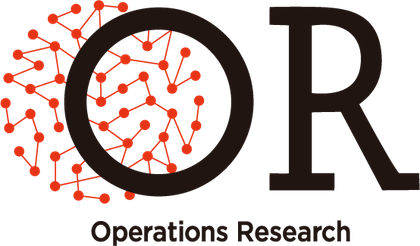第312回 「待ち行列研究部会」
日時:令和5年11月11日 14:00~17:00
場所:ハイブリッド (早稲田大学西早稲田キャンパス&オンライン)
■ 対面参加の方へ:
対面会場は「早稲田大学 西早稲田キャンパス 63号館 1F数学応数会議室」です.
■ オンライン参加の方へ:
オンラインで参加される方は,以下の URL より参加登録をお願いいたします.
https://us02web.zoom.us/meeting/register/tZ0oduiqqzsiH9fbvpKyvxNWxu3kn2siL2q4
■ 講師とテーマ
1. 山崎眞惟
「インサイダー取引規制と待ち行列理論」
インサイダー取引規制は、経営者のように会社の機密情報を入手し得る者による株式の売買を、一定の場面で禁じている。同規制の背後には、株価上昇に繋がる情報を知りながら株式を購入し、あるいは株価下落に繋がる情報を知りながら株式を売却することが無条件に認められると、機密情報を知り得ない投資家との対比において不当な優位性が生じるという認識がある。本報告では、法学分野における待ち行列理論の活用例として、機密情報の発生・消滅過程を待ち行列に擬えて上記認識や現行規制の適否を検証する方法を提示する。
2. LIU, Kangyong (Waseda University)
「Deep Learning Schemes for solving high-dimensional PDEs with Wiener-Chaos Expansion and its importantce in future application for Mean-Field type models in Finance」
Former researcher’s studies tried to solve the high dimension nonlinear partial differential equations by considering Feynman-Kac Formula to get the concerning BSDE. The forward diffusion process is very important, but all the old methods tried to approximate it by Euler scheme, However, my new algorithm firstly uses Wiener-Chaos Expansion to approximate the density function of forward diffusion,which can be considered as an efficient method with less calculations in algorithm because of the numbers of neural networks we need to approximate the density function is much less than the old methods. What’s more, with the benefit of approximating density function, we avoid the difficulty of the explosive time interval division situations happened in long time interval cases, and the accuracy is also better than the old methods. In future, our methods can be used in a lot of industry area, the first application is about mean- filed type problems. For example, the crow trading in Finance, we consider it as a classical mean-field Game problems, and we can use machine learning method to get the optimal trading strategies for our clients or traders.
3. *Qianyue Qu (Nara Institute of Science and Technology), Yuanyu Zhang, (Xidian University), Shoji Kasahara, (Nara Institute of Science and Technology)
「Auction Game in RIS-aided Secure Wireless Communication from the Physical Layer Security Perspective」
Reconfigurable intelligent surface (RIS) has attracted considerable attention recently due to their controllable elements capable of directing signals in desired directions. Although promising, in actual network operations, the deployment of RIS may face challenges as RIS holders need to consider maximizing their profits when installing RIS. Therefore, there is an auction problem for RIS-assisted wireless networks: how to maximize the profit of RIS holders. We consider a wireless network system containing a source-RIS-destination link and a source-RIS-eavesdropper link. With the help of RIS, the destination node and the eavesdropper obtain the optimal number of elements from RIS to maximize the secrecy rate of their data transmission. We then formulate the problem as an auction game based on the Alternative Ascending Clock Auction (ACT-A). We regard RIS as the auctioneer and the destination node and eavesdropper as the bidder. Additionally, we considered the different scenarios in this auction game from a security perspective. Finally, we use joint optimization algorithms to solve the problem of maximizing the utility function of different nodes in each scenario.
